
Baie des Citrons: The Serene Jewel of New Caledonia
Baie des Citrons, or Lemon Bay, is one of the most charming spots in New Caledonia. This beautiful bay is known for its calm, clear waters and stunning sandy beaches, making it a perfect destination for relaxation and water activities. The bay is a favorite among both locals and tourists who come to unwind and soak up the sun. The beach area is surrounded by lush greenery, adding to its natural beauty. Palm trees line the shore, providing shade and a picturesque backdrop. Snorkeling and swimming are popular here, thanks to the gentle waves and rich marine life. Visitors can spot colorful fish and coral reefs just a short swim from the beach. In the evenings, Baie des Citrons comes alive with a vibrant atmosphere. There are numerous cafes, bars, and restaurants along the waterfront, offering a variety of cuisines and local delicacies. The bay is also known for its lively nightlife, with music and entertainment that cater to all tastes. Whether you are looking to relax by the sea or enjoy a night out, Baie des Citrons offers a perfect blend of tranquility and excitement.
Local tips in Baie des Citrons
- Visit early in the morning to avoid crowds and enjoy the peaceful beach.
- Bring snorkeling gear to explore the rich marine life close to the shore.
- Try the local seafood at the waterfront restaurants for an authentic taste of New Caledonia.
- Stay until sunset to experience the beautiful colors and the lively evening atmosphere.
- Keep an eye on your belongings, especially during busy hours, to ensure a safe visit.
Baie des Citrons: The Serene Jewel of New Caledonia
Baie des Citrons, or Lemon Bay, is one of the most charming spots in New Caledonia. This beautiful bay is known for its calm, clear waters and stunning sandy beaches, making it a perfect destination for relaxation and water activities. The bay is a favorite among both locals and tourists who come to unwind and soak up the sun. The beach area is surrounded by lush greenery, adding to its natural beauty. Palm trees line the shore, providing shade and a picturesque backdrop. Snorkeling and swimming are popular here, thanks to the gentle waves and rich marine life. Visitors can spot colorful fish and coral reefs just a short swim from the beach. In the evenings, Baie des Citrons comes alive with a vibrant atmosphere. There are numerous cafes, bars, and restaurants along the waterfront, offering a variety of cuisines and local delicacies. The bay is also known for its lively nightlife, with music and entertainment that cater to all tastes. Whether you are looking to relax by the sea or enjoy a night out, Baie des Citrons offers a perfect blend of tranquility and excitement.
When is the best time to go to Baie des Citrons?
Iconic landmarks you can’t miss
Lagoon Aquarium
Explore the vibrant marine life of New Caledonia at Lagoon Aquarium, an educational attraction perfect for all ages.
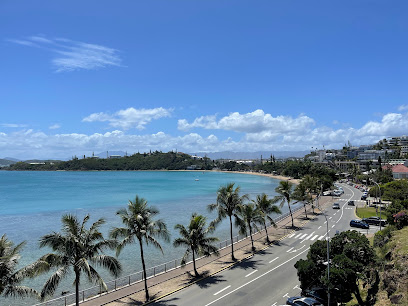
Place des Cocotiers
Discover the tranquil beauty of Place des Cocotiers, a vibrant city park in the heart of Nouméa, perfect for relaxation and cultural experiences.
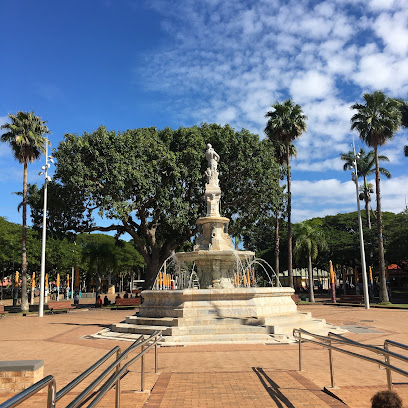
Tjibaou Cultural Centre
Experience the fusion of nature and culture at the Tjibaou Cultural Centre, a must-visit for art lovers and cultural explorers in New Caledonia.
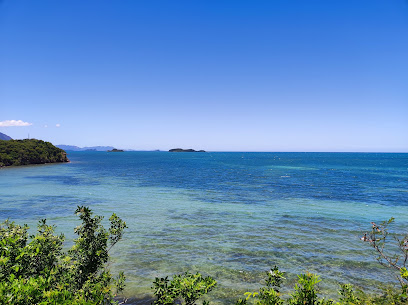
City Market
Experience the bustling charm of Nouméa's City Market, a vibrant hub for fresh produce, local delicacies, and artisan crafts in New Caledonia.
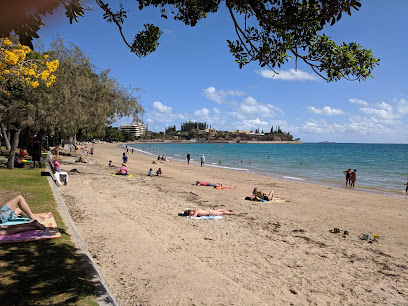
Le Méridien Noumea Resort & Spa
Discover the luxury of Le Méridien Noumea Resort & Spa, where stunning ocean views meet exceptional service and local culture in New Caledonia.
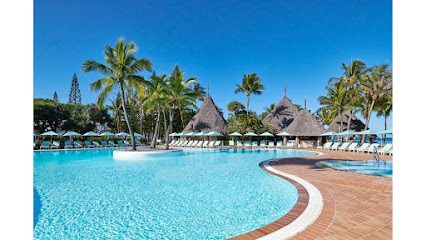
Amédée Lighthouse
Discover the stunning Amédée Lighthouse, a captivating blend of history and natural beauty in New Caledonia's breathtaking landscape.
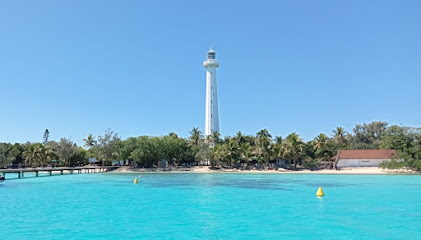
Parc Zoologique Et Forestier Michel Corbasson
Discover the rich biodiversity and stunning landscapes at Parc Zoologique Et Forestier Michel Corbasson, a premier animal park in Nouméa, New Caledonia.
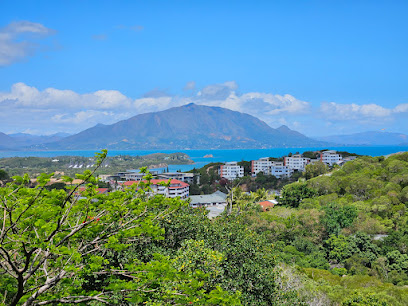
Plage de la Baie des Citrons
Experience the stunning beauty and vibrant atmosphere of Plage de la Baie des Citrons, a must-visit beach in New Caledonia perfect for relaxation and adventure.
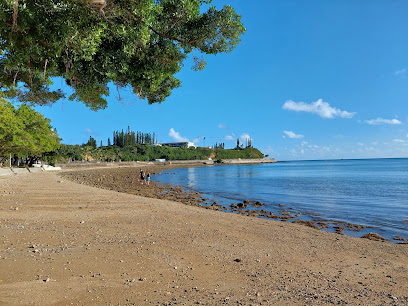
Canons du Ouen Toro
Discover the historical significance and breathtaking views at Canons du Ouen Toro, a must-visit vista point in Nouméa, New Caledonia.
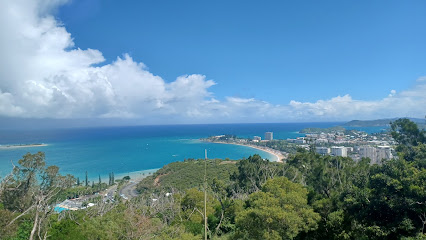
Amorino Nouméa
Discover the finest gelato in Nouméa at Amorino, where sweet flavors meet stunning coastal views in a charming cafe setting.
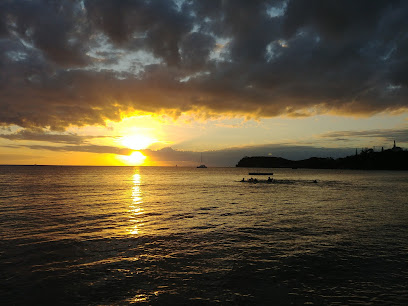
Les 3 Brasseurs
Discover the flavors of New Caledonia at Les 3 Brasseurs, a vibrant restaurant and brewery in the heart of Nouméa's Baie des Citrons.
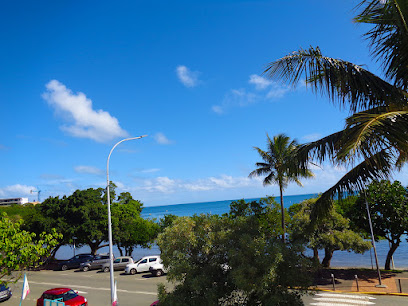
Hotel Beaurivage
Discover the epitome of comfort and elegance at Hotel Beaurivage, your gateway to the mesmerizing beauty of Nouméa, New Caledonia.

Mary D Agency - Phare Amédée
Explore the breathtaking beauty of New Caledonia with Mary D Agency - Phare Amédée, your gateway to unforgettable experiences in tropical paradise.
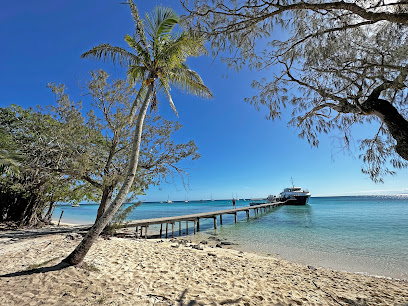
Baie Des Citrons Shopping Complex
Discover the vibrant Baie Des Citrons Shopping Complex, where shopping, dining, and stunning coastal views create a tropical paradise in Nouméa.

Lemon Bay Cafe
Discover the vibrant flavors of New Caledonia at Lemon Bay Café, where brunch meets breathtaking views in Nouméa's stunning Baie des Citrons.
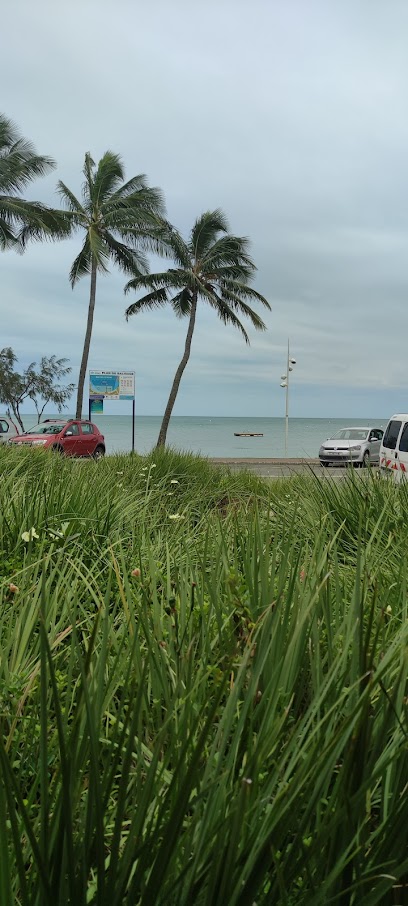
Unmissable attractions to see
Parc du Receiving Georges-Brunelet
Explore the serene landscapes of Parc du Receiving Georges-Brunelet in Nouméa, a perfect escape into nature's tranquility.
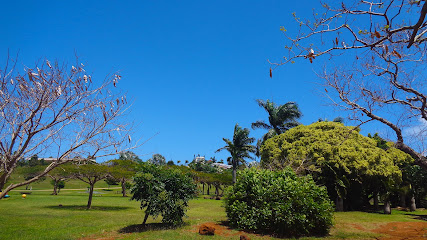
Grand Casino
Discover the allure of the Grand Casino in Nouméa, where excitement, dining, and live entertainment create an unforgettable nightlife experience.
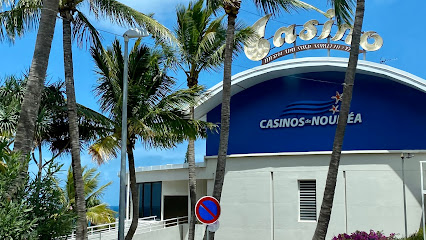
Les Boucles de Tina
Discover the enchanting landscapes and outdoor adventures at Les Boucles de Tina, a premier attraction in New Caledonia's natural paradise.
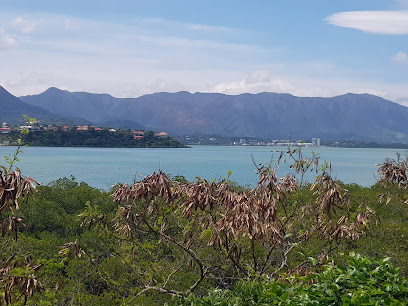
Iatok Diving Paradise
Explore the vibrant underwater world of New Caledonia at Iatok Diving Paradise, offering unforgettable diving experiences for all skill levels.
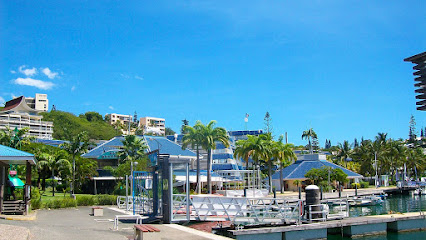
Château Hagen
Explore the rich heritage and artistic brilliance of New Caledonia at Château Hagen, a captivating cultural center in the heart of Nouméa.
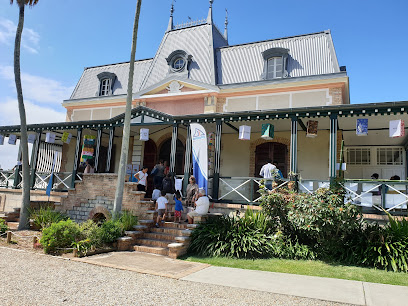
Parc du Ouen Toro
Explore the lush landscapes and captivating views of Parc du Ouen Toro, a premier city park in Nouméa, New Caledonia, perfect for relaxation and adventure.
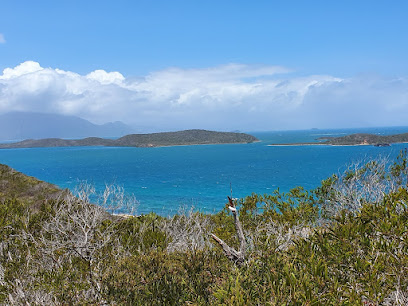
Canons de Ouémo
Explore Canons de Ouémo: A breathtaking blend of natural beauty and rich cultural history in New Caledonia's stunning landscapes.
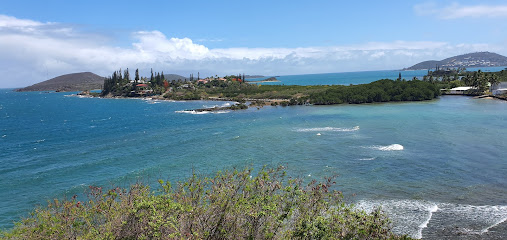
Pierre Vernier walkway
Experience the scenic beauty and vibrant culture at Pierre Vernier Walkway in Nouméa, New Caledonia, a hidden gem for travelers.
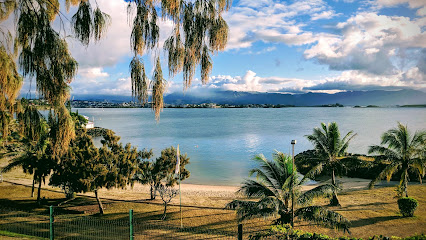
Maison Célières
Explore the rich history and stunning architecture of Maison Célières, a must-visit historical landmark in Nouméa, New Caledonia.
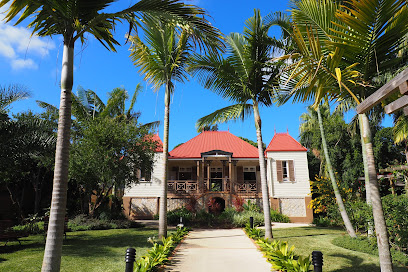
Sentier découverte de la mangrove
Explore the serene Mangrove Discovery Path in Nouméa, New Caledonia, where lush landscapes meet diverse wildlife in a peaceful natural setting.
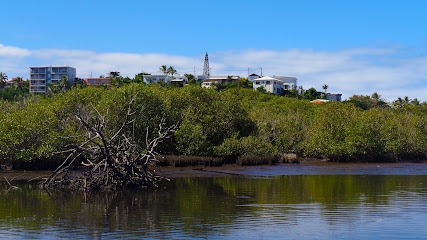
Le Trou des Nurses
Experience the rich heritage and stunning nature at Le Trou des Nurses, a historical landmark in New Caledonia perfect for every traveler.
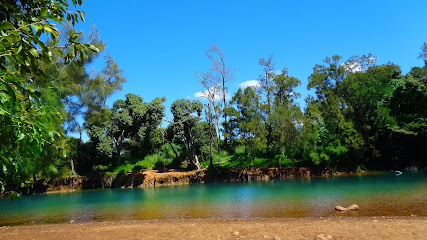
Parc Urbain de Sainte-Marie
Explore the serene Parc Urbain de Sainte-Marie in Nouméa, New Caledonia – a perfect city park for relaxation, picnics, and nature walks.
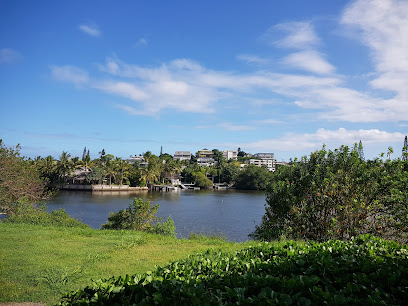
F.O.L
Explore the rich cultural heritage of New Caledonia at F.O.L, a vibrant cultural association in the heart of Nouméa.
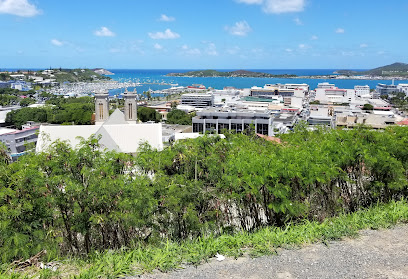
Notre Dame Du Pacifique
Explore the spiritual sanctuary of Notre Dame Du Pacifique, where breathtaking views meet rich cultural heritage in Nouméa, New Caledonia.
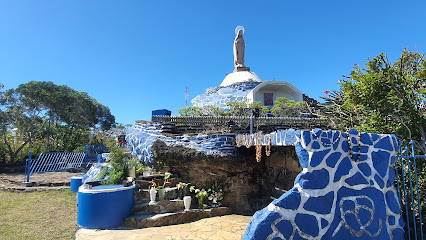
MEMORIALS
Uncover the rich history of New Caledonia at the memorials in Nouméa, where culture and heritage come together in stunning landscapes.
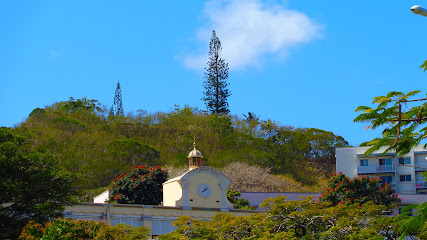
Essential places to dine
Stone Grill
Discover Stone Grill in Nouméa: where exceptional steaks meet stunning bay views in a unique dining experience.
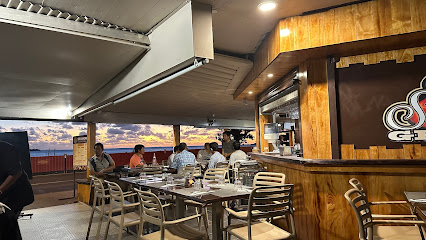
Marmite et Tire-Bouchon
Experience exquisite French cuisine blended with local flavors at Marmite et Tire-Bouchon in Nouméa.
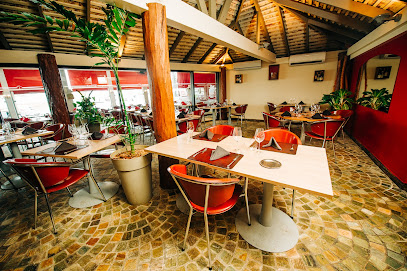
Amorino Nouméa
Experience gourmet gelato and delectable desserts at Amorino Nouméa—where every scoop is a taste of paradise!
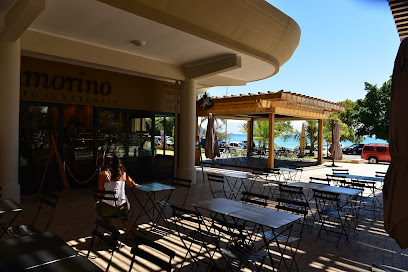
L'Atelier Gourmand
Experience culinary excellence at L'Atelier Gourmand in Nouméa - where French baking meets local flavors in a stunning seaside setting.
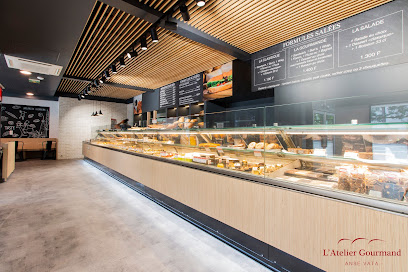
Tipico Latino
Experience vibrant Mexican cuisine at Tipico Latino in Nouméa—where every dish tells a story of flavor and tradition.
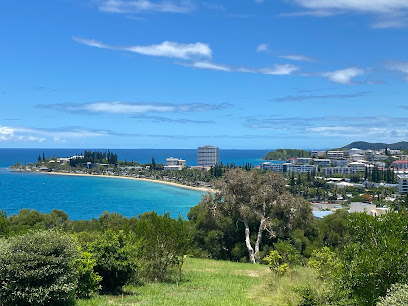
Les 3 Brasseurs
Discover the flavors of New Caledonia at Les 3 Brasseurs - where delicious food meets handcrafted brews in a stunning seaside setting.
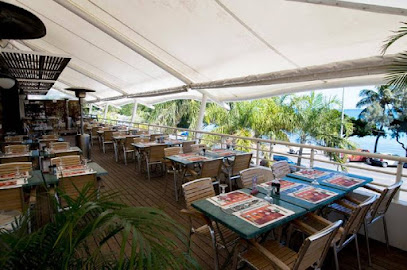
Babar Cafe
Discover culinary delights at Babar Cafe in Nouméa's Baie des Citrons - where local flavors meet stunning coastal views.
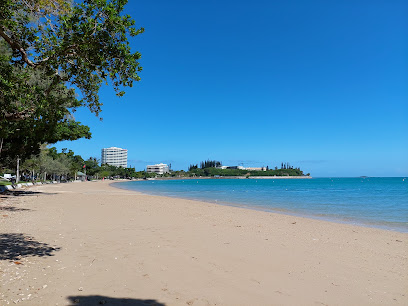
Fun
Discover Le Fun in Nouméa: A vibrant restaurant offering exquisite local and international cuisine with breathtaking coastal views.
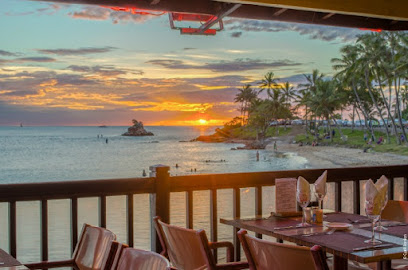
Mamma mia
Experience authentic Italian cuisine at Mamma Mia in Nouméa's picturesque Baie des Citrons – where every meal is a celebration.
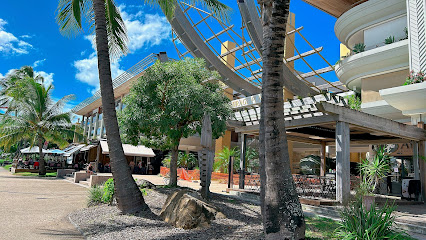
Lemon Bay Cafe
Experience delightful fusion cuisine at Lemon Bay Cafe in Nouméa - where local flavors meet international flair in a stunning seaside setting.
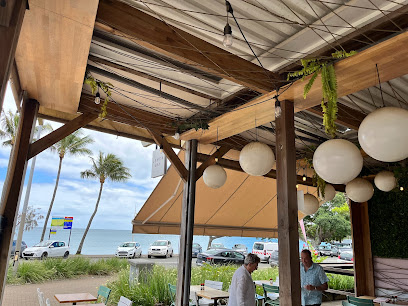
Casa Italia
Experience authentic Italian flavors at Casa Italia in Anse Vata – where every dish tells a story.
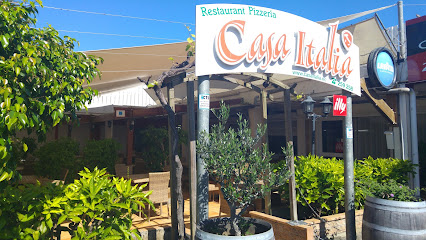
Uncle Hô
Experience authentic Vietnamese flavors at Uncle Hô in Nouméa's beautiful Baie des Citrons.
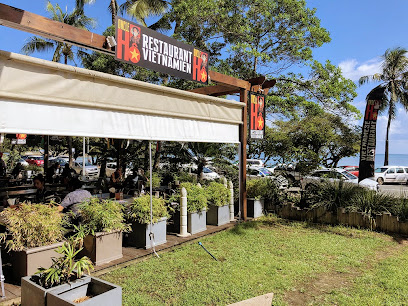
Texas Grill
Experience authentic American cuisine at Texas Grill in Nouméa - from sizzling steaks to hearty burgers by the beach.
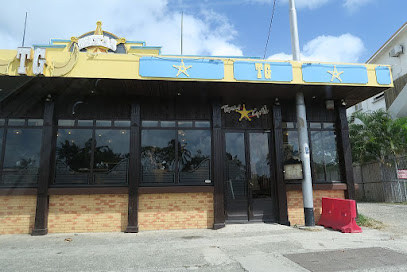
Restaurant Manuia
Experience the vibrant flavors of New Caledonia at Restaurant Manuia – where local ingredients meet stunning ocean views.
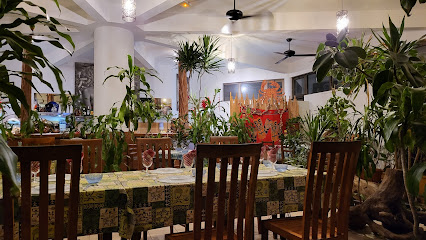
La Gavotte
Discover La Gavotte in Nouméa: where local flavors meet culinary artistry in an inviting atmosphere.
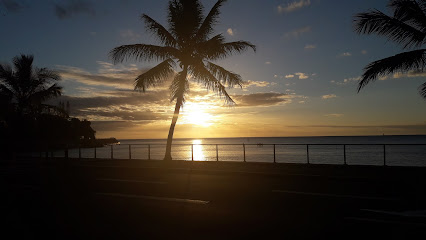
Markets, malls and hidden boutiques
Hilton Noumea La Promenade Residences
Discover the elegance and beauty of Hilton Noumea La Promenade Residences, your ultimate island retreat in New Caledonia.

Plage de la Baie des Citrons
Experience the beauty of Plage de la Baie des Citrons, a stunning beach in Nouméa, perfect for relaxation, adventure, and vibrant nightlife.
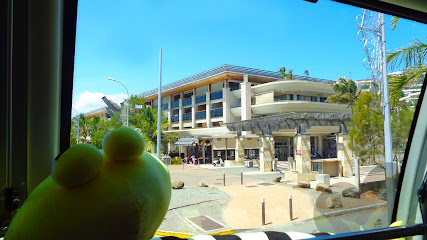
Amorino Nouméa
Indulge in artisanal gelato and delightful desserts at Amorino Nouméa, a sweet oasis in New Caledonia's beautiful Baie des Citrons.
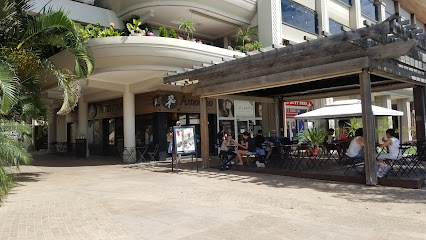
Baie Des Citrons Shopping Complex
Discover unique shopping and dining at Baie Des Citrons Shopping Complex, where vibrant atmosphere meets stunning coastal views.
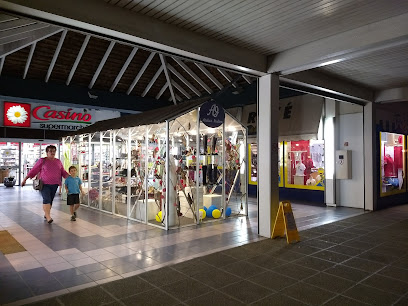
Lemon Bay Cafe
Experience the vibrant culinary fusion at Lemon Bay Cafe, the perfect spot for brunch by the beautiful Baie des Citrons in Nouméa.
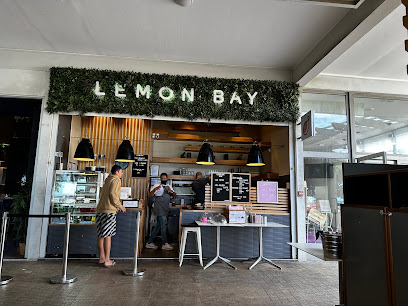
Kenu-In Shopping Mall
Explore the vibrant Kenu-In Shopping Mall in Nouméa, where shopping meets local culture and delightful cuisine awaits every visitor.
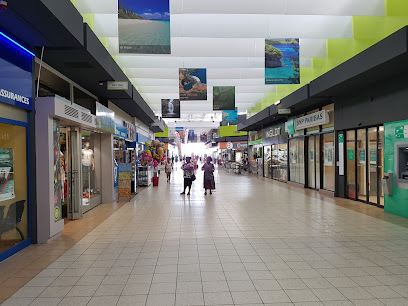
CASINO PORT PLAISANCE
Explore the local flavors and everyday essentials at CASINO PORT PLAISANCE, your go-to supermarket in Nouméa, New Caledonia.
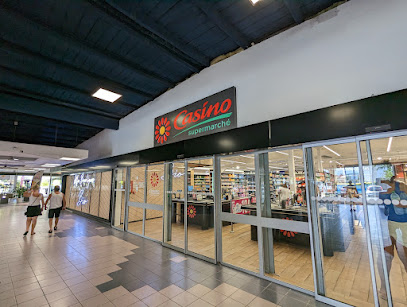
Galerie Port Plaisance
Discover the vibrant shopping scene at Galerie Port Plaisance in Nouméa, where local culture and unique finds await every visitor.
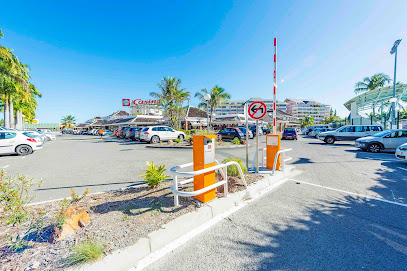
LA GUINCHE
Experience the lively blend of café culture and nightlife at La Guinche, a premier destination in Nouméa's Baie des Citrons.
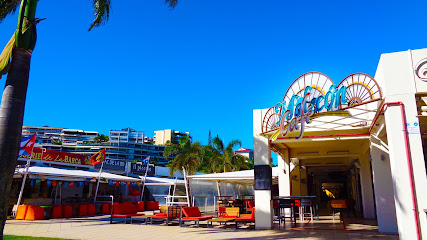
Olive Fragrances
Explore the exquisite flavors of Olive Fragrances, a culinary gem in Nouméa, New Caledonia, blending local ingredients with a charming ambiance.
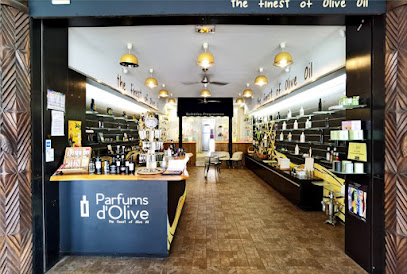
SUNSHINE COFFEE
Experience the delightful ambiance and exquisite flavors at Sunshine Coffee in Baie des Citrons, Nouméa, New Caledonia.
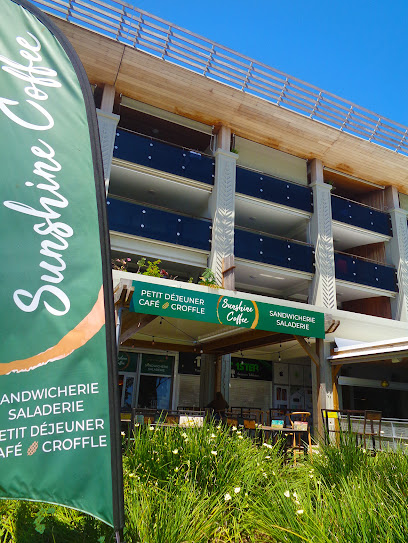
Patisserie Boulangerie Le Sabayon
Indulge in the finest French pastries and artisan breads at Patisserie Boulangerie Le Sabayon in Nouméa's scenic Baie des Citrons.
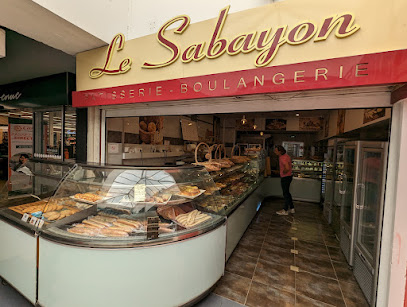
Maison de la Perle
Explore the enchanting world of jewelry at Maison de la Perle, a treasure trove in the heart of Nouméa, New Caledonia.
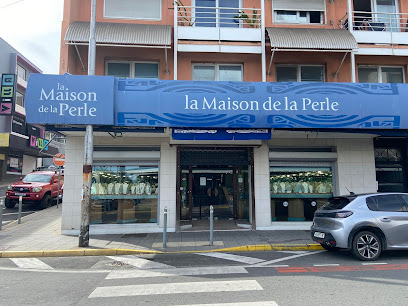
Bikini Epicerie
Discover Bikini Epicerie in Nouméa for a delightful selection of snacks and local products perfect for your beach adventures.
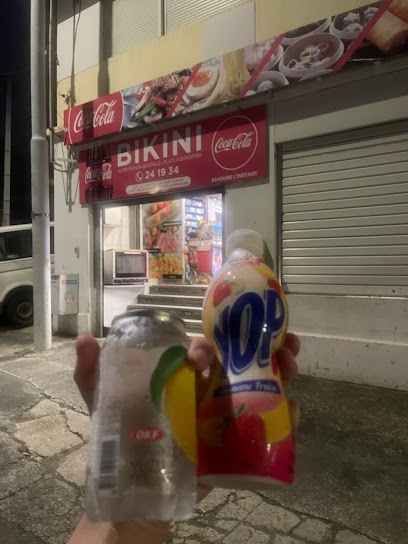
Ultra Violet
Discover unique fashion pieces at Ultra Violet, a stylish clothing store in the heart of Baie des Citrons, Nouméa, showcasing local culture and contemporary designs.
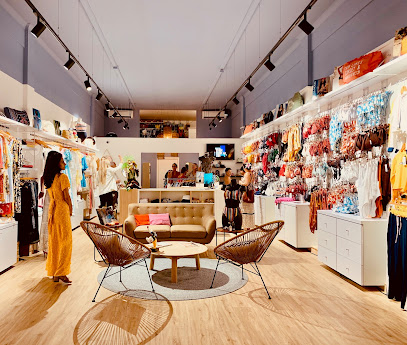
Essential bars & hidden hideouts
La Barca
Experience the vibrant atmosphere of La Barca, a seaside bar in Nouméa, offering stunning views, delicious cocktails, and lively entertainment.
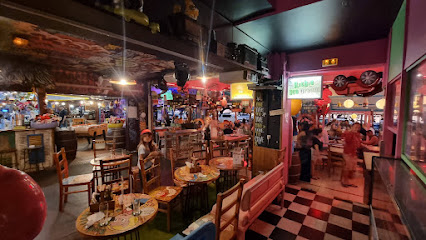
La Bodega del Mar
Experience the vibrant flavors of New Caledonia at La Bodega del Mar, a lively tapas bar offering exquisite dishes and stunning waterfront views.
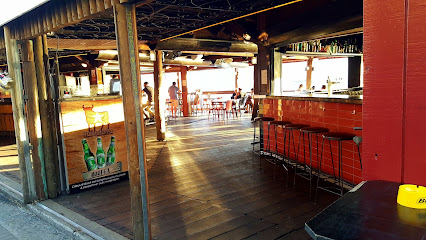
Les 3 Brasseurs
Experience the best of New Caledonia’s craft beer and culinary delights at Les 3 Brasseurs, a lively bar and brewery in Nouméa.
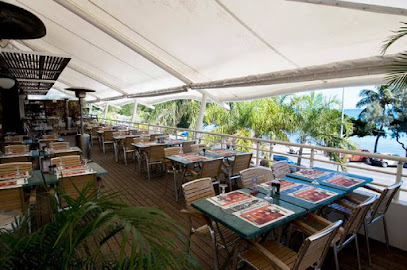
MV Lounge
Discover the lively MV Lounge in Nouméa, where vibrant music and refreshing cocktails create unforgettable moments by the Baie des Citrons.
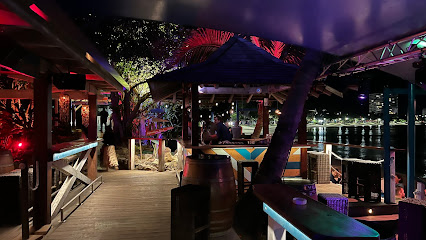
Babar Cafe
Discover the flavors of New Caledonia at Babar Cafe, a vibrant bar and restaurant with stunning ocean views in Nouméa's Baie des Citrons.
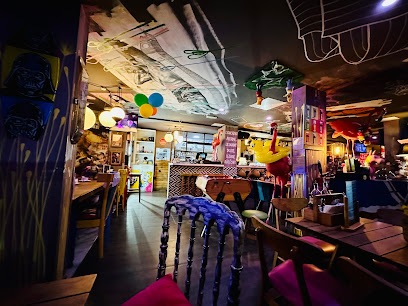
Chai de l'Hippodrome
Experience the best of New Caledonia's wine culture at Chai de l'Hippodrome, where exquisite selections meet a charming atmosphere.
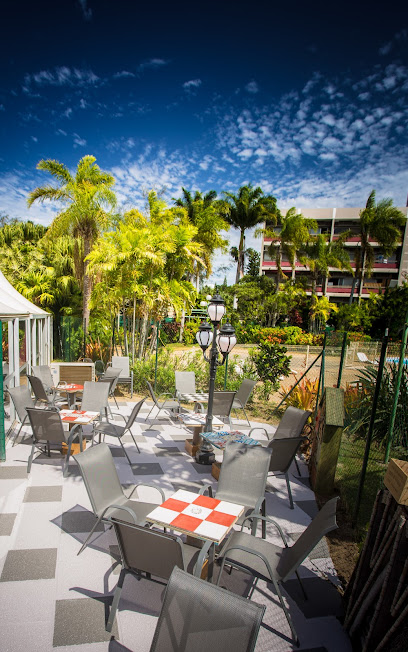
Single Fin
Discover the vibrant charm of Single Fin, a premier bar and restaurant in Nouméa offering stunning views, delicious food, and lively entertainment.
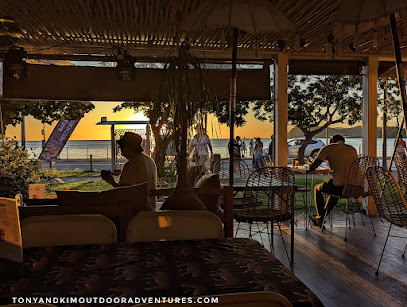
LA GUINCHE
Experience the lively atmosphere, delicious food, and stunning views at La Guinche, the heart of Nouméa's nightlife and dining scene.
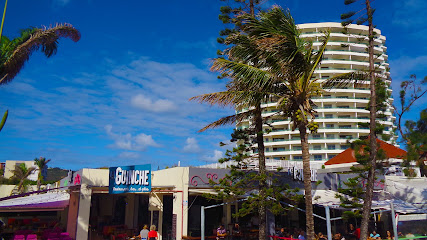
Le 12 Glasser Bar Tapas Nouméa
Experience the vibrant culinary scene of Nouméa at Le 12 Glasser, where exquisite tapas and innovative cocktails await.
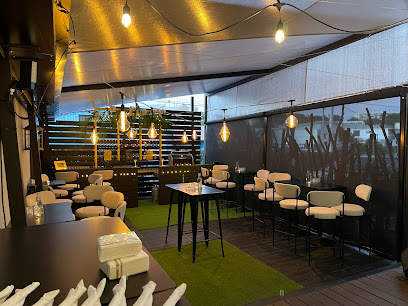
Olive Fragrances
Experience the essence of New Caledonia at Olive Fragrances, where delightful dishes and serene ambiance create unforgettable dining moments.
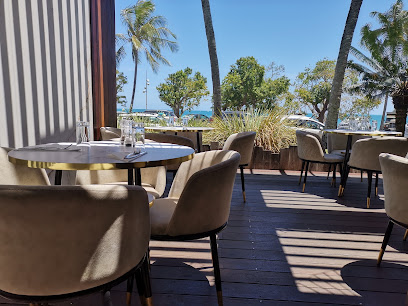
L'Etrave
Experience the vibrant atmosphere and stunning views at L'Etrave, the ultimate bar destination in Nouméa, New Caledonia.
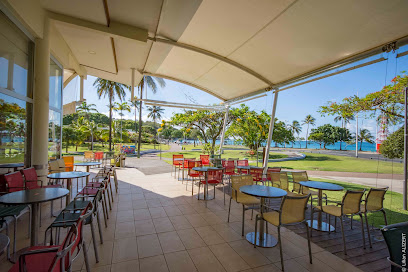
Q20
Discover Q20, a charming wine bar in Nouméa, offering exquisite wines, local beers, and delectable tapas in a welcoming atmosphere.
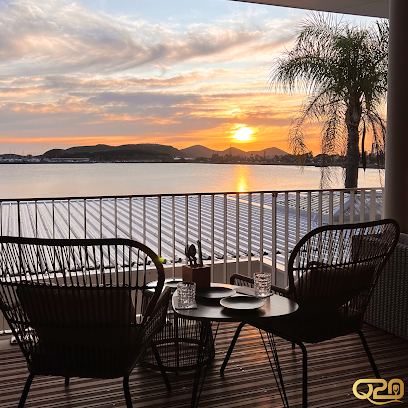
L’Endroit Rooftop
Experience breathtaking sunset views and exquisite cocktails at L’Endroit Rooftop, Nouméa's premier cocktail bar in Baie des Citrons.
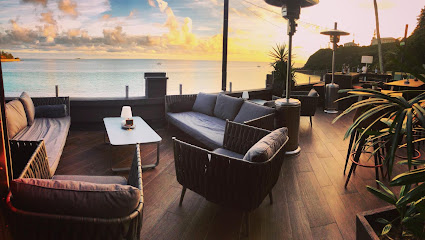
Codebar
Experience the vibrant atmosphere of Codebar, where tropical drinks and stunning ocean views come together in the heart of Nouméa.
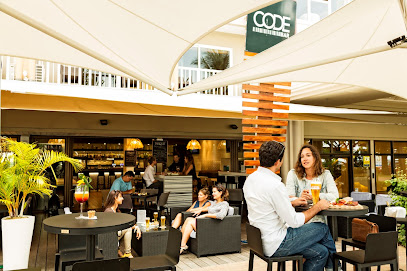
Local Phrases about Baie des Citrons
-
- HelloBonjour
[Bon-zhoor] - GoodbyeAu revoir
[O re-vwahr] - YesOui
[Wee] - NoNon
[Non] - Please/You're welcomeS'il vous plaît/De rien
[Seel voo pleh/Dee ryen] - Thank youMerci
[Mehr-see] - Excuse me/SorryExcusez-moi/Désolé
[Ex-kew-zay mwah/Day-zo-lay] - How are you?Comment ça va?
[Koh-mon sah vah?] - Fine. And you?Bien. Et toi?
[Byen. Ay twah?] - Do you speak English?Parlez-vous anglais?
[Par-lay voo on-glay] - I don't understandJe ne comprends pas
[Zhuh nuh kohm-prahnd pah]
- HelloBonjour
-
- I'd like to see the menu, pleaseJe voudrais voir le menu, s'il vous plaît
[Zhuh voo-dray vwahr luh men-yoo, seel voo pleh] - I don't eat meatJe ne mange pas de viande
[Zhuh nuh mahnj pah duh vyand] - Cheers!Santé!
[San-tay] - I would like to pay, pleaseJe voudrais payer, s'il vous plaît
[Zhuh voo-dray pay-yay, seel voo pleh]
- I'd like to see the menu, pleaseJe voudrais voir le menu, s'il vous plaît
-
- Help!Au secours!
[O se-coor] - Go away!Va-t'en!
[Vah-tahn] - Call the Police!Appelez la police!
[Ah-peh-lay lah po-lees] - Call a doctor!Appelez un médecin!
[Ah-peh-lay uh may-deh-sahn] - I'm lostJe suis perdu
[Zhuh swee pair-doo] - I'm illJe suis malade
[Zhuh swee mah-lahd]
- Help!Au secours!
-
- I'd like to buy...Je voudrais acheter...
[Zhuh voo-dray zah-shay...] - I'm just lookingJe regarde juste
[Zhuh ruh-gard zhoost] - How much is it?Combien ça coûte?
[Kohm-byen sah koot] - That's too expensiveC'est trop cher
[Say troh shair] - Can you lower the price?Pouvez-vous baisser le prix?
[Poo-vay voo bay-say luh pree]
- I'd like to buy...Je voudrais acheter...
-
- What time is it?Quelle heure est-il?
[Kell uhr eh-teel] - It's one o'clockIl est une heure
[Eel eh oon uhr] - Half past (10)Dix heures et demi
[Dee-zeuhr eh dem-ee] - MorningMatin
[Mah-tahn] - AfternoonAprès-midi
[Ah-pray me-dee] - EveningSoir
[Swahr] - YesterdayHier
[Yehr] - TodayAujourd'hui
[O-zhoor-dwee] - TomorrowDemain
[Deh-man] - 1Un
[Ehn] - 2Deux
[Duh] - 3Trois
[Twa] - 4Quatre
[Kah-truh] - 5Cinq
[Sank] - 6Six
[Sees] - 7Sept
[Set] - 8Huit
[Wheat] - 9Neuf
[Nurf] - 10Dix
[Dee]
- What time is it?Quelle heure est-il?
-
- Where's a/the...?Où est le/la...?
[Oo eh luh/lah] - What's the address?Quelle est l'adresse?
[Kell eh lah-dress] - Can you show me (on the map)?Pouvez-vous me montrer (sur la carte)?
[Poo-vay voo muh mon-tray (soor lah kart)] - When's the next (bus)?Quand est le prochain (bus)?
[Kahn eh luh proh-shan (bus)] - A ticket (to ....)Un billet (pour ....)
[Ehn bee-yay (poor)]
- Where's a/the...?Où est le/la...?
History of Baie des Citrons
-
The history of Baie des Citrons begins with the indigenous Kanak people, who have inhabited the region for thousands of years. The bay provided them with abundant resources, including fish and shellfish, and played a key role in their daily lives and cultural practices.
-
In the late 18th century, European explorers began to chart the waters of the South Pacific. French navigator Antoine Bruni d'Entrecasteaux was among the first to map Baie des Citrons during his search for the lost expedition of La Pérouse in 1791. The bay's strategic location made it a significant anchorage point for these early explorers.
-
New Caledonia, including Baie des Citrons, was officially claimed by France in 1853. The bay became an important site for French colonial activities, including the establishment of Nouméa as the capital. The French influence is still evident in the architecture and cultural landscape of the region.
-
During World War II, Baie des Citrons played a crucial role as a strategic naval base for Allied forces in the Pacific theater. The bay's sheltered waters and proximity to Nouméa made it an ideal location for naval operations, supply depots, and troop deployments. The remnants of wartime infrastructure can still be found in the area.
-
In the post-war era, Baie des Citrons transitioned into a popular recreational area. The bay's beautiful beaches and calm waters attracted both locals and tourists. The establishment of restaurants, bars, and shops along the waterfront transformed it into a bustling social hub, known for its vibrant nightlife and leisure activities.
-
Baie des Citrons is also a focal point for cultural festivals and events that celebrate the diverse heritage of New Caledonia. Events such as the annual Lemon Bay Festival highlight the bay's historical significance and offer a platform for showcasing traditional Kanak dances, music, and crafts. These events play a key role in preserving and promoting the cultural identity of the region.
-
In recent years, there has been a growing emphasis on marine conservation in Baie des Citrons. Efforts to preserve the bay's natural beauty and biodiversity include initiatives to protect coral reefs, manage sustainable fishing practices, and promote eco-tourism. These conservation measures aim to ensure that the bay remains a pristine destination for future generations.
Baie des Citrons Essentials
-
Baie des Citrons is located in Nouméa, the capital city of New Caledonia. International travelers typically arrive at La Tontouta International Airport, which is about 50 kilometers from Nouméa. From the airport, you can take a shuttle, taxi, or rent a car to reach Baie des Citrons. The drive takes approximately 45 minutes via the scenic Route Territoriale 1 (RT1).
-
Once you are in Baie des Citrons, getting around is relatively straightforward. The area is compact and walkable, with many attractions, restaurants, and shops within easy reach. For longer distances, local buses and taxis are available. Taxis are reliable but can be more expensive. There are also bike rentals available for those who prefer to explore on two wheels.
-
The official currency in New Caledonia is the CFP Franc (XPF). Credit cards are widely accepted in hotels, restaurants, and larger shops, but it is advisable to carry some cash for smaller establishments and markets. ATMs are readily available in Baie des Citrons, and currency exchange services can be found at the airport and in Nouméa.
-
Baie des Citrons is generally a safe area for tourists, but it is always wise to take standard precautions. Avoid isolated areas at night and keep an eye on your belongings in crowded places. While the crime rate is relatively low, petty theft such as pickpocketing can occur. Areas to be cautious in include the city center during late hours and some of the more isolated beaches.
-
In case of emergency, dial 15 for medical emergencies, 17 for the police, and 18 for the fire service. The closest hospital is the Centre Hospitalier Territorial Gaston Bourret in Nouméa. Pharmacies are available for minor health issues. It is recommended to carry travel insurance that covers medical expenses.
-
Fashion: Do dress casually and comfortably, but avoid overly revealing clothing. Beachwear is acceptable at the beach but not in town. Religion: Do respect local customs and traditions, especially when visiting religious sites. Public Transport: Do be courteous and offer your seat to elderly passengers. Don't play loud music or eat on public transport. Greetings: Do greet people with a handshake; a polite "Bonjour" is customary. Eating & Drinking: Do try local dishes and seafood. Don't refuse food or drink offered by locals, as it is considered impolite.
-
To experience Baie des Citrons like a local, visit the local markets for fresh produce and handmade crafts. Engage with locals; they are friendly and often willing to share insights about their culture and history. Don't miss the chance to try 'Bougna,' a traditional Melanesian dish. For a unique experience, take a sunset cruise to enjoy the stunning views of the bay.
Trending Landmarks in Baie des Citrons
-
Lagoon Aquarium
-
Place des Cocotiers
-
Tjibaou Cultural Centre
-
City Market
-
Le Méridien Noumea Resort & Spa
-
Amédée Lighthouse
-
Parc Zoologique Et Forestier Michel Corbasson
-
Plage de la Baie des Citrons
-
Canons du Ouen Toro
-
Amorino Nouméa
-
Les 3 Brasseurs
-
Hotel Beaurivage
-
Mary D Agency - Phare Amédée
-
Baie Des Citrons Shopping Complex
-
Lemon Bay Cafe
Nearby Cities to Baie des Citrons
-
Things To Do in La Foa
-
Things To Do in Bourail
-
Things To Do in Tadine
-
Things To Do in Hienghène
-
Things To Do in Isangel
-
Things To Do in Lenakel
-
Things To Do in Port Vila
-
Things To Do in Lamap
-
Things To Do in Lakatoro
-
Things To Do in Norsup
-
Things To Do in Luganville
-
Things To Do in Cascade
-
Things To Do in Burnt Pine
-
Things To Do in Ball Bay
-
Things To Do in Kingston








